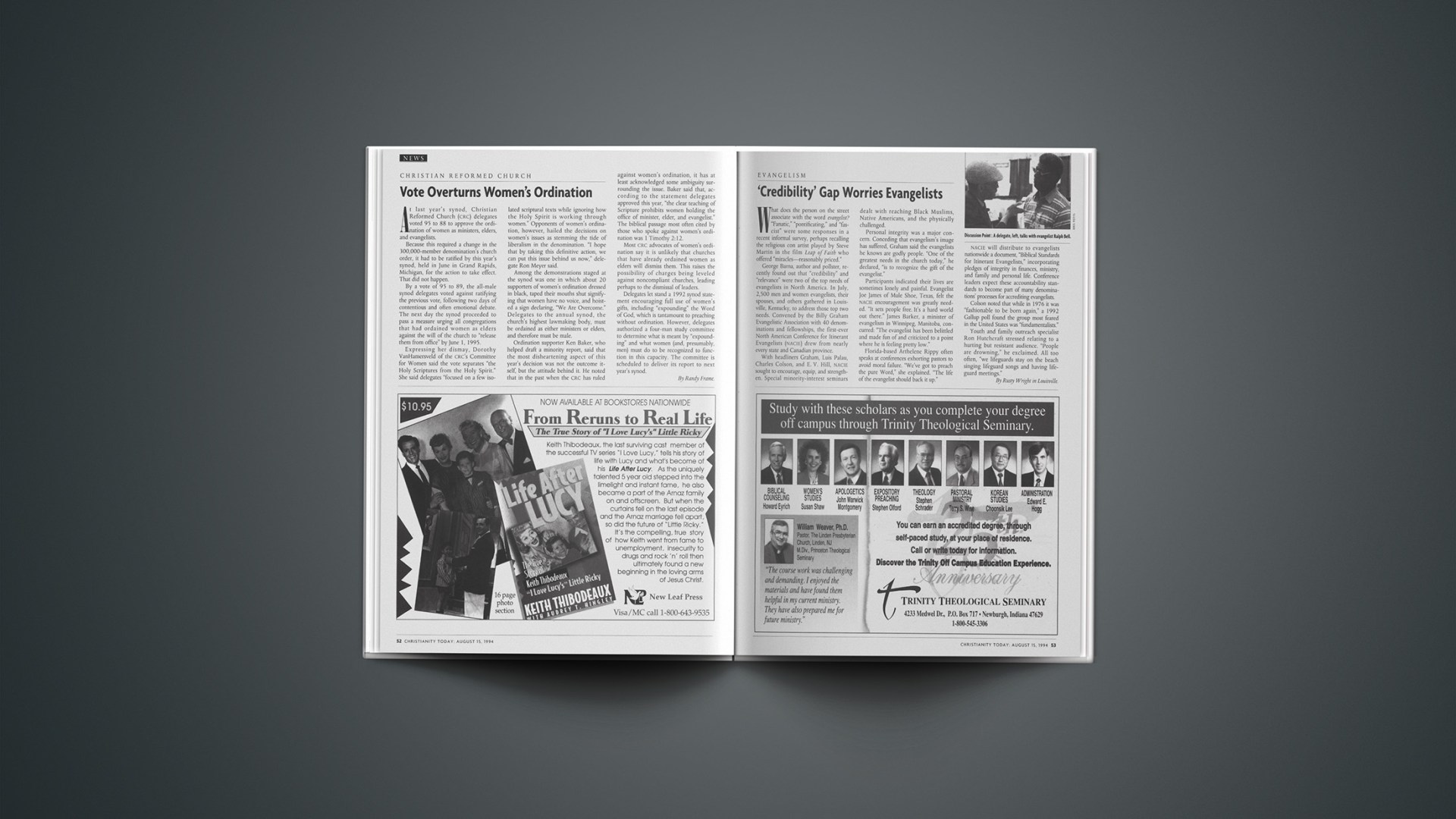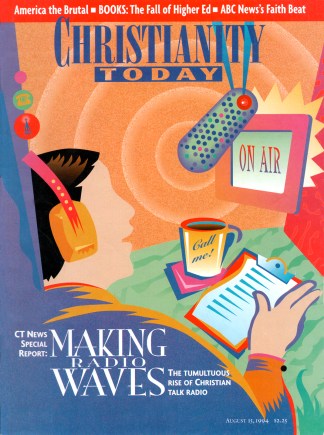What does the person on the street associate with the word evangelist? “Fanatic,” “pontificating,” and “fascist” were some responses in a recent informal survey, perhaps recalling the religious con artist played by Steve Martin in the film Leap of Faith who offered “miracles—reasonably priced.”
George Barna, author and pollster, recently found out that “credibility” and “relevance” were two of the top needs of evangelists in North America. In July, 2,500 men and women evangelists, their spouses, and others gathered in Louisville, Kentucky, to address those top two needs. Convened by the Billy Graham Evangelistic Association with 40 denominations and fellowships, the first-ever North American Conference for Itinerant Evangelists (NACIE) drew from nearly every state and Canadian province.
With headliners Graham, Luis Palau, Charles Colson, and E. V. Hill, NACIE sought to encourage, equip, and strengthen. Special minority-interest seminars dealt with reaching Black Muslims, Native Americans, and the physically challenged.
Personal integrity was a major concern. Conceding that evangelism’s image has suffered, Graham said the evangelists he knows are godly people. “One of the greatest needs in the church today,” he declared, “is to recognize the gift of the evangelist.”
Participants indicated their lives are sometimes lonely and painful. Evangelist Joe James of Mule Shoe, Texas, felt the NACIE encouragement was greatly needed. “It sets people free. It’s a hard world out there.” James Barker, a minister of evangelism in Winnipeg, Manitoba, concurred: “The evangelist has been belittled and made fun of and criticized to a point where he is feeling pretty low.”
Florida-based Arthelene Rippy often speaks at conferences exhorting pastors to avoid moral failure. “We’ve got to preach the pure Word,” she explained. “The life of the evangelist should back it up.”
NACIE will distribute to evangelists nationwide a document, “Biblical Standards for Itinerant Evangelists,” incorporating pledges of integrity in finances, ministry, and family and personal life. Conference leaders expect these accountability standards to become part of many denominations’ processes for accrediting evangelists.
Colson noted that while in 1976 it was “fashionable to be born again,” a 1992 Gallup poll found the group most feared in the United States was “fundamentalists.”
Youth and family outreach specialist Ron Hutchcraft stressed relating to a hurting but resistant audience. “People are drowning,” he exclaimed. All too often, “we lifeguards stay on the beach singing lifeguard songs and having lifeguard meetings.”
Copyright © 1994 Christianity Today. Click for reprint information.










